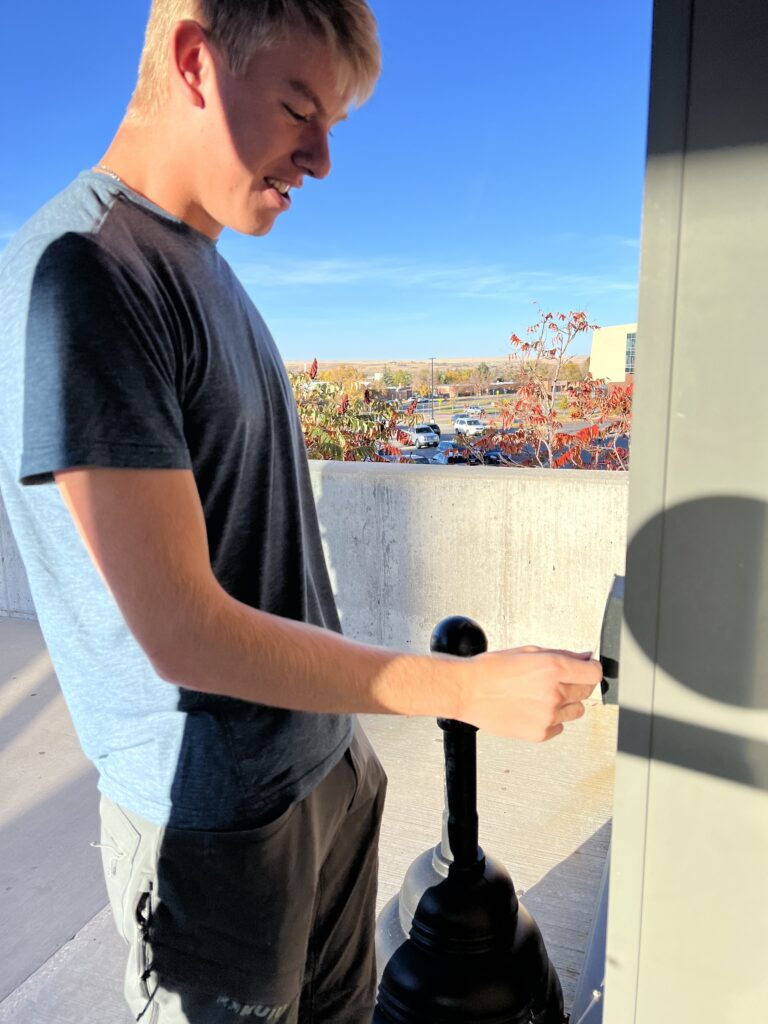By Hailey Carr

Students at Casper College are questioning the Residence Hall’s protocols enforced for safety reasons.
Casper College, like many other schools, prioritizes student safety by taking various precautions. The Residence Hall, in particular, implements specific protocols to ensure that students are secure, especially late at night.
After 11 p.m., only the main entrances and the northwest door to the dorms remain open for students, while all other doors are locked and inaccessible. Although there are seven entrances in total, residents can only access them during daylight hours, while security personnel and RAs have 24/7 access.
Several students raised complaints about this protocol, often questioning the necessity of such a rule. When interviewed about their thoughts on the matter, many expressed frustration, citing the policy’s impact on their daily routines and social activities.
Trae Tetrault, a student who regularly deals with the protocol, voiced his discontent, saying, “It’s very inconvenient when coming in late on weekends.” Many students share the feeling that the regulation adds an inconvenience to campus life.
Residence Hall Coordinator Elizabeth Dobson, from Billings, Montana, provided insight for this safety protocol. She emphasized that a major factor is compliance with the Clery Act, which plays a significant role in shaping campus security measures.
The Clery Act, officially known as the Jeanne Clery Disclosure of Campus Security Policy and Campus Crime Statistics Act, is a federal law requiring colleges and universities that receive federal financial aid to disclose campus crime statistics and safety policies. It was named after Jeanne Clery, a college student who was tragically murdered in her dorm room in 1986 due to her building’s doors being propped open, allowing anyone in. The Act’s purpose is to promote transparency about campus safety.
In addition to the Clery Act, Dobson explained that funneling people through the main entrances at night helps security conduct rounds more effectively and monitor those coming in late. She mentioned that locking the side doors during late hours is essential to prevent unwanted guests from entering, especially if a door does not shut properly.
Dobson acknowledged students’ frustration with the policy, understanding that many find it inconvenient. However, she stands by the decision, citing safety as the priority. She expressed concern that keeping the wing doors open late could allow heavily intoxicated students to avoid being seen by security, which poses a safety risk. “I have to weigh student convenience, policy enforcement, and safety,” Dobson stated. “And safety and policy weigh a lot more heavily for me.”
Resident Assistant Taylor Crook acknowledged, “I understand the frustration,” but emphasized that the protocol is necessary. With multiple entry points around the Residence Hall, she believes it is safer for security to monitor just one entrance at night.
Currently, there are no plans to change the protocol. However, Dobson encourages students to reach out with any questions or concerns. The staff at Casper College are committed to ensuring student safety, even if it occasionally leads to inconveniences.
The debate surrounding the Residence Hall’s protocols at Casper College highlights the ongoing tension between student convenience and safety. While many students express frustration over the restrictions and their impact on daily life, campus officials emphasize that these measures are essential for maintaining a secure environment. Ultimately, the commitment to student welfare remains a top priority, even when it necessitates inconvenient regulations.
